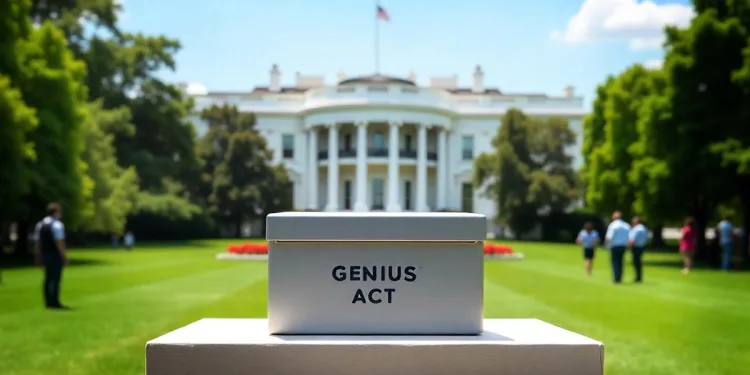- A House procedural vote failed 196–223, blocking debate on the GENIUS, Clarity, and Anti-CBDC Acts amid GOP defections.
- Key Republicans opposed the rule over concerns the bills didn’t fully ban central bank digital currencies (CBDCs).
- Trump secured pledges from 11 GOP holdouts to back a revote, with Speaker Johnson pushing to advance the crypto legislation.
A procedural vote in the U.S. House of Representatives meant to advance three major crypto related bills failed on Tuesday, halting legislative momentum and disrupting Republican plans for what was dubbed “Crypto Week.”
Lawmakers voted 196-223 against a rule that would have allowed debate and voting on the GENIUS Act, the Clarity Act, and the Anti-CBDC Act. The same rule also covered a proposed funding measure for the Department of Defense.
According to a House aide, Republican leaders now aim to bring the measure back for another vote as early as Wednesday.
GOP fights Halts on Crypto Legislation Momentum
The failed rule vote, which included the GENIUS Act already passed by the Senate, surprised many. Twelve Republicans voted against the measure, joining all Democrats in opposition.
According to The Hill, dissenting Republicans included Representatives Marjorie Taylor Greene, Chip Roy, Michael Cloud, and Anna Paulina Luna. Greene voiced concern on social media about the GENIUS Act’s approach to central bank digital currencies.
She said it failed to include language banning CBDCs. Roy and Luna also cited concerns about indirect support for a digital dollar. Punchbowl News reported that Roy was particularly critical of the absence of a “hard ban on CBDCs.”
Crypto Week Stalled Despite Prior Support and Senate Approval
The legislation includes the GENIUS Act, which would mandate that stablecoins be fully backed by U.S. dollars or liquid assets. It would also require annual audits for issuers with over $50 billion in market cap and set guidelines for foreign stablecoin issuance.
The Clarity Act aims to clarify digital asset regulation between the SEC and CFTC, including rules for custody and financial disclosures. Tom Emmer’s Anti-CBDC Act was also part of the legislative package, targeting any effort by the Federal Reserve to directly issue digital currencies to individuals.
Digital Chamber CEO Cody Carbone pushed back against Greene’s interpretation, stating that the Anti-CBDC Surveillance Act already addressed those concerns.
Trump Confirms GOP Votes After Oval Office Talks
Following the failed vote, President Donald Trump announced late Tuesday that he met with 11 of the 12 needed GOP lawmakers. According to his Truth Social post, all agreed to support the rule vote scheduled for Wednesday morning.
Speaker Mike Johnson participated by phone and thanked Trump for helping secure Republican votes to advance the legislation.
Earlier, Johnson acknowledged resistance within the party but called the bills essential. With Republicans holding a slim majority in the House, party unity will be critical as leaders prepare for the rescheduled vote.














